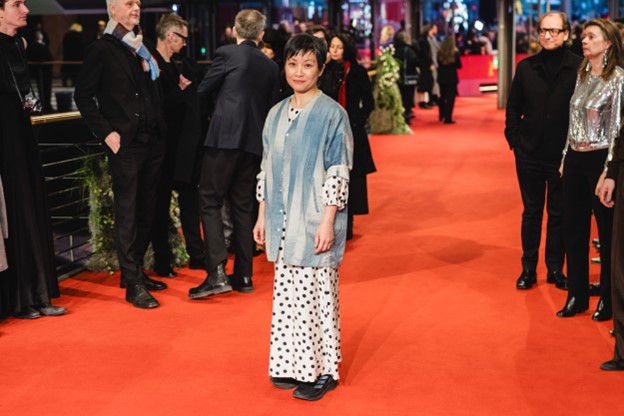
Lesley Loksi Chan, a Canadian artist, filmmaker and alumna from York University’s School of the Arts, Media, Performance & Design (AMPD)’s Production Program, received international acclaim at the 2025 Berlin International Film Festival (Berlinale) for her short film, Lloyd Wong, Unfinished.
Chan’s short film won the prestigious Teddy Award for Best Short Film and the Golden Bear for Best Short Film at Berlinale, one of the world’s leading film festivals.
The Teddy Award for Best Short Film is given to a short film that artistically and meaningfully depict 2SLGBTQIA+ topics, characters or experiences, while the Golden Bear award recognizes outstanding achievement in short filmmaking – regardless of theme, genre or country of origin.

Chan’s now award-winning work began as an archive project initiated by AMPD Professor John Greyson in the Fall of 2020.
Lloyd Wong – the subject of Chan’s film – had been Chinese Canadian gay man living with AIDS in Toronto during the early 1990s. Before dying from AIDS-related illnesses, Wong had been working on a project based on his experiences that would be part of Toronto Living with Aids, a groundbreaking community-driven video serios about HIV/AIDS for public access cable television from 1990-91.
For nearly 30 years, the incomplete footage he had shot was believed lost. But it turned out it had made a winding journey. First, they had made their way from Lloyd's executor to Canadian filmmaker, Helen Lee, in the mid 1990s. When Lee was moving in 2005, she passed them along to Richard Fung, another Canadian filmmaker. Fung, eventually, gave them to The ArQuives, the largest independent LGBTQ2+ archive in the world. Then in in 2020, York alum Ryan Conrad discovered listings for the tapes as part of his research for the York Archive/Counter-Archive project. The tapes were on an obscure format – SuperVHS – so when Greyson heard the footage had been discovered, he borrowed the tapes to have them carefully restored and digitized.
Then Greyson reached out to Chan to ask if she was interested in restoring the archival footage. She said, yes.
Over the next four years, Llyod Wong, Unfinished took shape – partly – during Chan’s participation in Viral Interventions, a residency focused on creating new films about living with HIV, co-led by Greyson and Sarah Flicker, a York Research Chair (Tier 2) in Community-Based Participatory Research.
During that time, Greyson once noted that as Chan advanced the project her connection to it – and Wong – seemed “haunted.” That haunting culminated in Llyod Wong, Unfinished.
The experimental documentary – which combines Chan’s research notes and Wong’s raw footage – looks to reflect on the significance of inheriting images from queer communities, who and what gets archived and why, and the nature of unfinished work. At the same time, it shines a light on the power of self-representation and the tragedy of silenced voices erased by the HIV/AIDS crisis and systemic marginalization.
Chan credits her time at York University as having been formidable in the making of the film and becoming a filmmaker. “It was life changing,” she says. “AMPD influenced how I think about filmmaking. I also learn learned a lot about how to see images, myself and others.”
Now based in Europe, Chan is working on a research project at the Estonian Film Institute and curating an upcoming exhibition of films by pioneering media artist Midi Onodera.
With files from Alexandra Tucci
